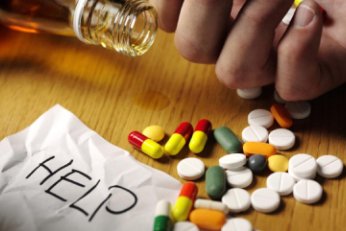Why We Do What We Do
July 15, 2024 2024-09-10 7:12Why We Do What We Do
Why We Do What We Do
Nireekshana diligently offers its services to those affected by HIV/AIDS, leprosy, and neglected tropical diseases (NTDs), addressing societal needs and combating bias against the underprivileged. We work relentlessly every day to tackle the following issues, striving to contribute to the overall well-being of the community.

Stigma and Discrimination
People living with HIV/AIDS, leprosy, and NTDs frequently experience violations of their rights due to assumptions or knowledge of their health issues. Stigmatization and discrimination can obstruct their access to treatment and affect their employment, housing, and other rights. Consequently, this contributes to the vulnerability of others to infection, as patients affected by HIV and leprosy feel discouraged from seeking health and social services. As a result, many affected families who need information, education, and counseling do not benefit from services, even when they are accessible.

Sexual Abuse / Trafficking
The nexus of the global epidemics of sex trafficking, media/cybercrimes, and HIV/AIDS predominantly affects the lives of women and girls. This intersection is evident in sex trafficking victims' increased vulnerability to HIV infection, the spread of HIV infection through sex trafficking, and the perceived and actual clashes between HIV and sex trafficking prevention efforts. A comprehensive approach to these intersecting issues involves awareness and elimination of sex trafficking reduce HIV transmission.

Drugs & Alcohol
Drug abuse and addiction have been linked with HIV/AIDS since the beginning of the epidemic. Although injection drug use is well known in this regard, the role that non-injection drug abuse plays in the spread of HIV is less recognized. This is partly due to the addictive and intoxicating effects of many drugs, which can alter judgment and inhibition, leading people to engage in impulsive and unsafe behavior. Drug abuse and addiction can affect a person’s overall health, thereby altering susceptibility to HIV and the progression of AIDS.

Gender & Poverty
Certain groups are more vulnerable to contracting the HIV virus because of their inability to realize their civil, political, economic, social, and cultural rights. Individuals living in poverty often are unable to access HIV care and treatment, including antiretrovirals and other medications for co-infections. Women, particularly young women, are more vulnerable to infection often due to lack of access to information, education, and services necessary to ensure sexual and reproductive health and prevention of infection. The unequal status of women in the community further increases the chance of disease spread, making women’s empowerment a great need.

Community Health
Neglected Tropical Diseases (NTDs) are endemic in the large pockets of poverty that continue to exist in rural and urban India. These are the skin NTDs: leprosy, lymphatic filariasis (LF), and scabies; the (other than LF) mosquito- borne NTDs: dengue and chikungunya; soil transmitted helminthiasis, snake envenomation, and rabies. These diseases pose significant health challenges in many resource-constrained communities.
Much of this is due to lack of awareness and ignorance about simple methods of prevention, and when and where to go for early diagnosis and correct treatment. Increased community awareness of NTDs and their prevention, including WASH (water, sanitation, and hygiene) practices, could contribute significantly to the prevention of NTDs and other WASH related diseases in communities at risk. Nireekshana ACET has been training community leaders in health awareness in Tuberculosis, Leprosy, HIV/AIDS, and common health conditions since 2004. The present project proposes to address improving awareness on NTDs and WASH through training community leaders who can influence the health practices and health seeking behaviour of their local communities. By empowering community leaders with simple but effective information, we hope to improve health and sanitation among the communities they represent.



